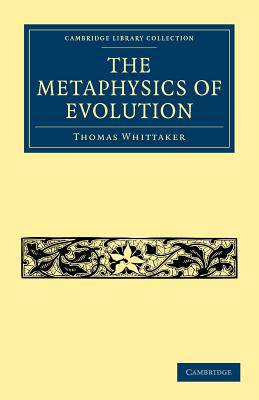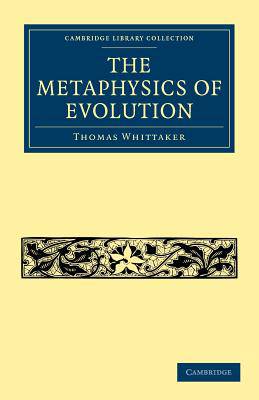
Je cadeautjes zeker op tijd in huis hebben voor de feestdagen? Kom langs in onze winkels en vind het perfecte geschenk!
- Afhalen na 1 uur in een winkel met voorraad
- Gratis thuislevering in België vanaf € 30
- Ruim aanbod met 7 miljoen producten
Je cadeautjes zeker op tijd in huis hebben voor de feestdagen? Kom langs in onze winkels en vind het perfecte geschenk!
- Afhalen na 1 uur in een winkel met voorraad
- Gratis thuislevering in België vanaf € 30
- Ruim aanbod met 7 miljoen producten
Zoeken
Omschrijving
What conclusions do the facts of cosmic and organic evolution require or permit on the origin and destiny of the world and the individual? From 1881 to 1925 Thomas Whittaker, an Oxford-trained scientist turned philosopher, grappled with this question, which he tried to answer by metaphysical interpretation of the sciences. The majority of the essays in this volume first appeared in Mind, and a few in other journals, while three had not been previously published. Whittaker ranges widely over some of the most daring theories of the past, from the early centuries of the common era (including Apollonius of Tyana and Origen), to the middle ages (including John Scotus Erigena and Nicholas of Cusa), the renaissance (Giordano Bruno, Shakespeare) and the early modern period. Whittaker's own view is that hypothesis and imagination are legitimate aids in the search for truth in both science and philosophy in a new synthesis.
Specificaties
Betrokkenen
- Auteur(s):
- Uitgeverij:
Inhoud
- Aantal bladzijden:
- 496
- Taal:
- Engels
- Reeks:
Eigenschappen
- Productcode (EAN):
- 9781108004374
- Verschijningsdatum:
- 24/09/2009
- Uitvoering:
- Paperback
- Formaat:
- Trade paperback (VS)
- Afmetingen:
- 140 mm x 216 mm
- Gewicht:
- 621 g

Alleen bij Standaard Boekhandel
+ 86 punten op je klantenkaart van Standaard Boekhandel
Beoordelingen
We publiceren alleen reviews die voldoen aan de voorwaarden voor reviews. Bekijk onze voorwaarden voor reviews.









